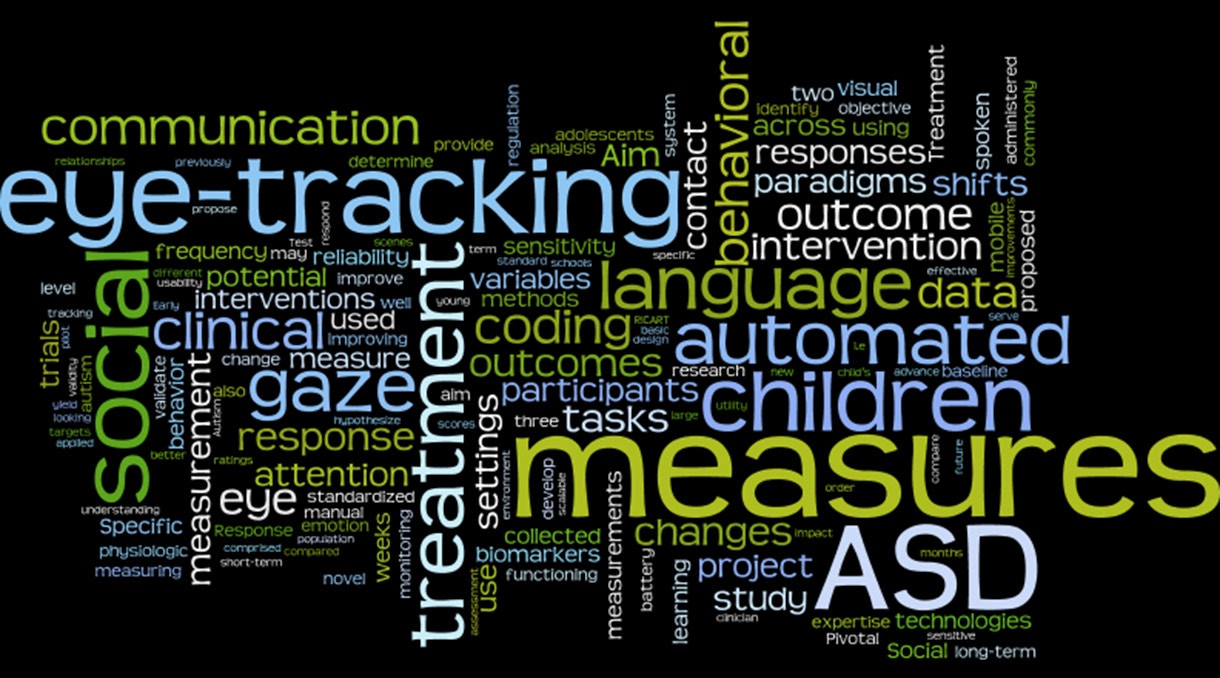
The Simons Foundation Autism Research Initiative (SFARI) is pleased to announce that it has awarded four grants in response to the Novel Outcome Measures for ASD Clinical Trials request for applications (RFA).
These grants will help support research that aims to develop and validate objective measures for use in clinical trials targeting core symptoms of autism spectrum disorder (ASD) and disruptive behavioral symptoms commonly reported in individuals with ASD. SFARI will provide up to $2 million in funding over the next two years as part of this program.
“Robust, reliable and sensitive measures of meaningful change will be critical to the development of new treatments and supports for individuals with ASD,” says Wendy Chung, director of clinical research at SFARI.
Pamela Feliciano, SFARI senior scientist, adds, “A major roadblock in clinical trials in autism is the lack of tools to objectively measure and evaluate treatment response. The work done in these grants will help bring the field forward.”
The following grants were selected for funding:
James Rehg, Ph.D. (Georgia Institute of Technology)
Objective measures of social interactions via wearable cameras
Difficulties initiating eye contact and shifting gaze are fundamental to social communication impairments in individuals with ASD. This study aims to develop objective, automated measurements of eye contact and gaze shifts to provide a comprehensive and rapid method to quantify these behaviors in ASD.
Stephen Sheinkopf, Ph.D. (Brown University)
Biomarkers of emotion regulation, social response and social attention in autism
Current clinical studies often rely upon long-term outcome measures that are rather insensitive to short-term treatment effects. This study plans to assess physiological responses to social events (including monitoring heart rate and electrodermal activity) and visual attention to social scenes (using eye-tracking) that could be used as measures of short-term changes in response to treatment. The outcome of this project will be a potential battery of biomarkers of emotional and attentional responses that could help to speed discovery and validation of early interventions.
Frederick Shic, Ph.D., and Pamela Ventola, Ph.D. (Yale University)
Tracking intervention effects with eye-tracking
This study aims to evaluate the use of eye-tracking for monitoring changes over the course of an evidence-based behavioral treatment intervention for children with ASD. Both laboratory-based measures (using a commercial eye-tracking system) as well as home-based measures (using a tablet-based system) will be administered as part of this study.
Helen Tager-Flusberg, Ph.D. (Boston University)
Developing expressive language outcome measures for autism clinical trials
Improving spoken communicative language skills is an important objective of ASD interventions. With this goal in mind, the current project aims to develop new, reliable and valid low-cost methods for measuring clinically meaningful improvements in expressive language from children and adolescents with ASD that can be readily implemented in future clinical trials.


